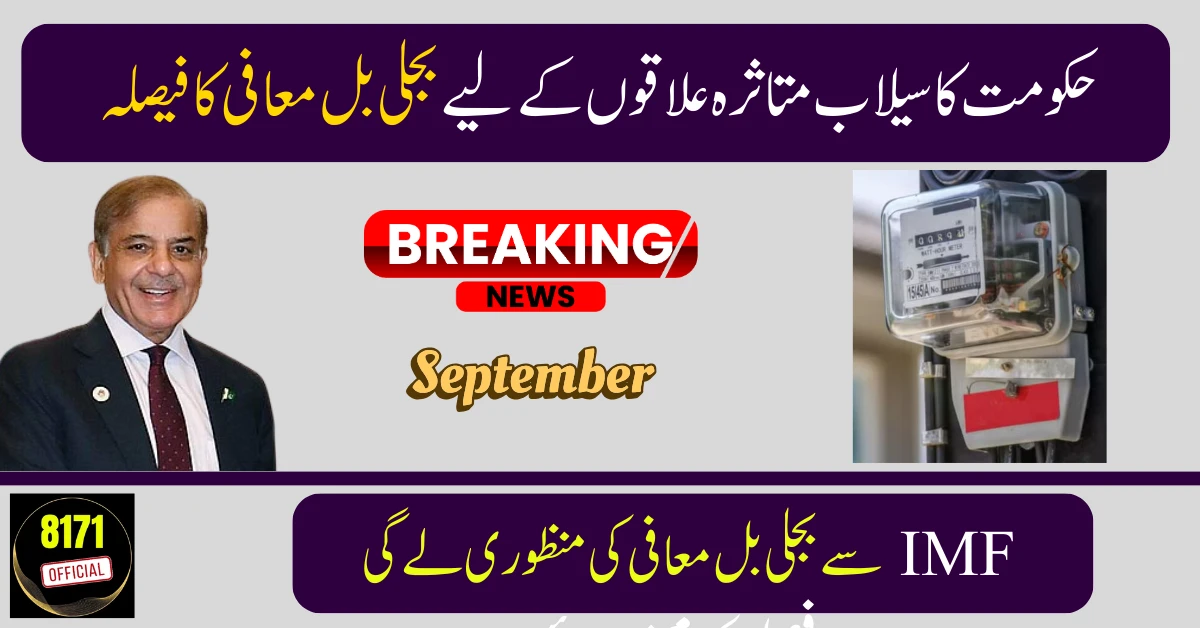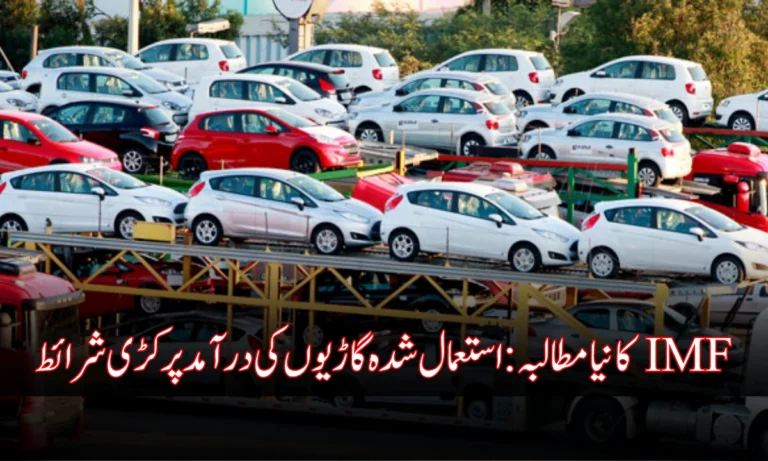In a move to provide urgent relief to citizens impacted by recent floods, the government of Pakistan is preparing to seek International Monetary Fund (IMF) approval for a one-month exemption on electricity bills in flood-affected regions.
PM Directs Finance Minister to Engage IMF
According to official sources, Prime Minister Shehbaz Sharif has instructed the finance minister to open discussions with the IMF regarding a special relief package. The initiative aims to ease the financial burden on households already struggling with flood damage.
Sources revealed that the proposal centers on waiving one month of electricity bills for both urban and rural consumers in areas that have been hit hardest by flooding.
Focus on Flood-Impacted Communities
The floods have caused widespread devastation, destroying homes, crops, and infrastructure across multiple provinces. By removing electricity bill payments for a month, the government hopes to provide families with immediate financial breathing space so they can focus on recovery and rebuilding efforts.
Officials highlighted that the relief would not be limited to rural districts; urban populations in flood-hit towns and cities would also benefit. This inclusive approach is designed to ensure that all segments of society receive support during the crisis.
IMF Approval Key to Implementation
Because Pakistan is currently under an IMF-supported program, the government requires approval from the lender to move forward with the subsidy. Analysts say this could be a sensitive point of negotiation, as the IMF has consistently pressed Pakistan to reduce energy sector subsidies and increase revenue collection.
However, officials are optimistic that the humanitarian nature of the proposal will help secure IMF backing. “This is a temporary measure aimed at immediate relief for citizens. We are confident the IMF will understand,” one source stated.
A Step Toward Recovery
If approved, the exemption will offer much-needed respite to thousands of families in flood-hit areas. It also signals the government’s intent to prioritize public welfare in times of crisis, even while balancing tough economic reforms under international commitments.
For now, all eyes remain on upcoming discussions with the IMF, which will determine whether the electricity bill waiver can move from proposal to reality.












